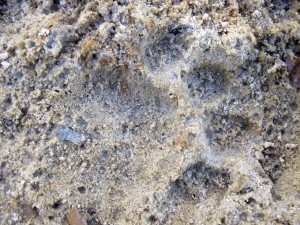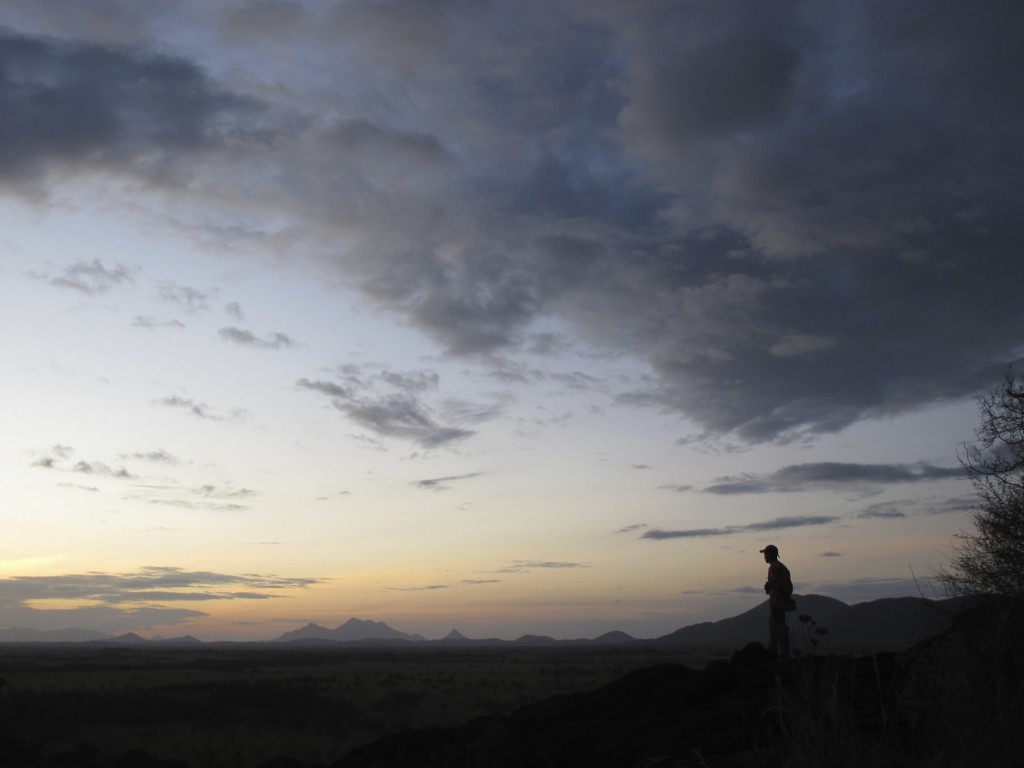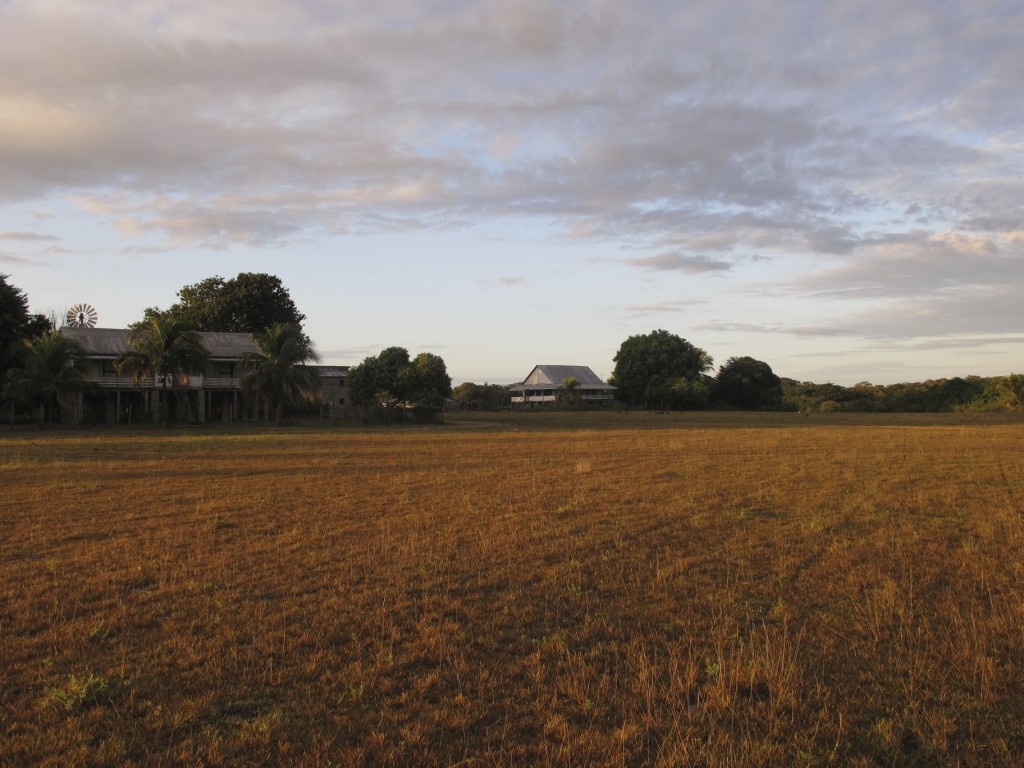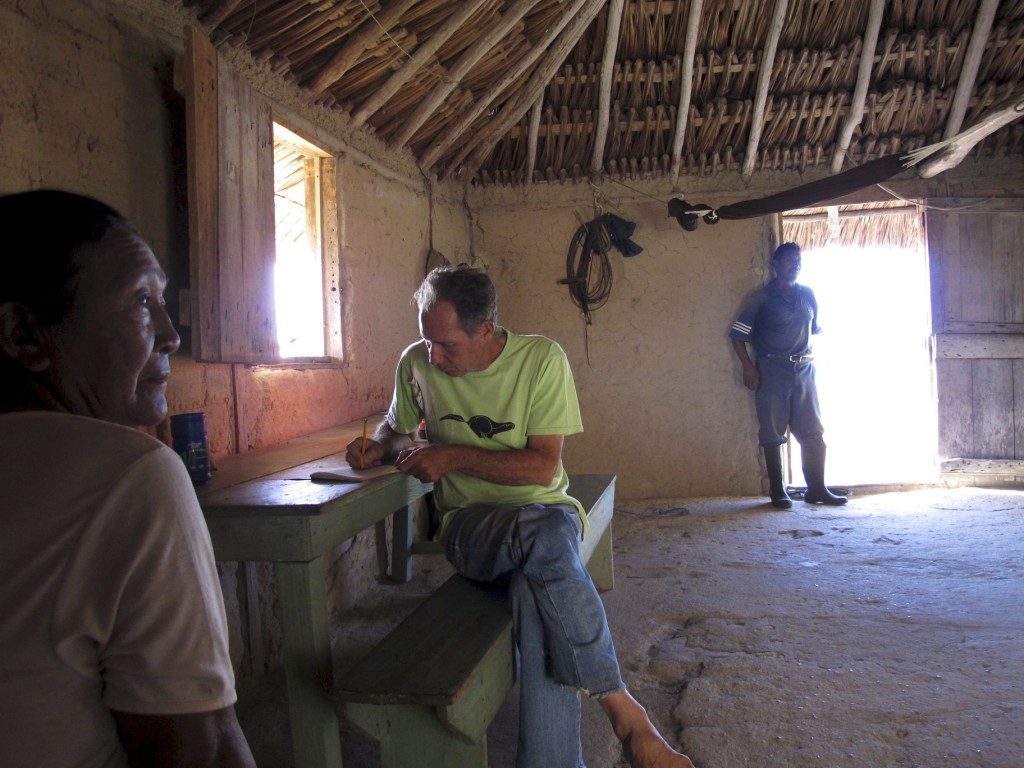Vagabonding Field Reports: Dadanawa Cattle Ranch, Guyana, South America
Cost/day: $0.8/day
Guyana isn’t really that cheap. However, if you’re creative and have some skills, anything is possible. I worked at Dadanawa Cattle Ranch for two and a half months in exchange for food and board. Most of my money went towards toiletries, insect repellant and beer. Being frugal was easy because the nearest town was 4 hours drive over rough savannah roads away.
What’s the strangest thing you’ve seen lately?
“ GET OUT OF MY GARDEN” yelled Dani. A chicken was destroying the shallots and was being nonchalant about it too. Duane Defreitas, ranch manager and adventurer, shot at it from the balcony with a Ruger 22 handgun. “Oh scunt!” Winged it. Chung, a Chinese anthropologist, chased after the feathered fugitive with a machete.Duane’s grandchildren, shrieking havoc, joined the chase. The chicken swerved, the anthropologist threw the machete at it, missed. The kids ran it down and I found a solitary claw at the bottom of the lunch pot while a monkey wrestled a kitten under the kitchen table.
Describe a typical day:
4.30am: Get woken up by cockerels and by Foghorn. Foghorn is the name I gave a calf tied up between my house and the slaughterhouse. He has a disproportionately loud moo to body mass ratio. Light a candle and have a cold shower. Say “Hi” to the Amerindian family living downstairs. Go over to the main house and make breakfast – eggs, home smoked pork or homemade pastrami, toast, and homemade jam – with Duane who is an insomniac sudoku player. Listen to BBC Radio 4 World Service and play with Monks a golden-handed tamarin and house pet.
5.30am: Head out in the 4×4 or on trail bikes armed with a cutlas (machete), a handgun and a shotgun for protection. I don’t really like guns and haven’t much experience of them but if that’s all that lies between me and getting eaten by pumas then I tend not to object. Ride through the savannah as the sun rises looking for fresh animal tracks. (The other week a mother jaguar and two cubs had crossed the road about an hour before us.)
6.30 – 10.30am: Go to a gallery forest at the base of Darakuban mountain, in the Kanuku Mountain Range, and wade through a creek looking for animals, tracks and the best place to put camera traps. Try to avoid surprise encounters with caiman, anaconda and other deadly and venomous animals, reptiles and insects. Camera traps use motion sensors to trigger when something passes by them and are left in the same position for a period of time. They give a good idea of what animals are in the vicinity for conservation research, tourism or curiosity. We have caught a variety on cameras including, jaguar, ocelot, capybara, agouti, labba, armadillo and tapir.
Head back to the ranch.

Jaguar track found about 5 minutes walk from the corral and the ranch buildings - Photo by Kris Arndt
11.30am: Have lunch with everyone. Normally farine (little yellow rocks made of cassava) and tasso (dried beef made on the ranch) with curry or stew.
12.00pm: Everyone goes for a sleep during the hottest part of the day.
13.00: Go back to the main house and do some work on the internet with Monkey sitting on my lap and Spider Cat (a kitten) clawing his way up my leg. There is no electricity on the ranch and no mainline telephone. They do have a generator which works occasionally and solar panels which power the internet and a light.
15.00pm: Go to the corral to take pictures of the vaqueros (barefooted amerindian cowboys) branding, castrating and riding wild cattle. Join in the fun.
16.30pm: Do some writing while sitting in my hammock and looking out over the savannah and the Kanuku Mountains. Fantasize about ice cream and other dairy products. Consider risking life to milk a wild cow. Give up on the idea. Continue writing.
5.30pm: Go for a run, barefooted, with Evi, a Biologist doing research on jaguars for Panthera. Check for animal tracks on the way and stop at the river crossing to look for water snakes, caiman and any other wildlife that may be lurking about at dusk. Run back to the ranch and do some yoga while night rolls in.
19.00 – Variable: Go to the main house and have dinner (usually soup) and ‘gaff’ with Duane and everyone else by candlelight while drinking copious amounts of El Dorado rum with water. This usually leads to absurd and inappropriate conversations.
Describe an interesting conversation you had with a local:
Guyana is still 80% rainforest the majority of which is pristine and has a population of less than 1million inhabitants, most of whom are in the north on the coast. There are many conservation projects going on but there is also a lot of mining and many young people leave the ranches and villages for the gold bush causing quite a few social and economic problems. Alison is a Wapisiana amerindian who is living and working on the ranch. She’s originally from Sand Creek, one of the 11 amerindian villages in South Rupununi. I was chatting to her about the gold bush. Wages in Rupununi are very low, Alison calls hers “Tips”. For that reason and because she has two kids to feed she went to work in the gold bush as a cook in a gold mining camp. She can earn much more money there though it’s difficult and dangerous. She told me her friend contracted typhoid, dengue fever and malaria at the same time though, miraculously, survived. Apart from disease she also had to look out for snakes and insects. She said that women can earn money providing “extra services” for the men but she didn’t want to do that. There is also a lot of robbery and other crime in the bush.
What do you like about where you are? Dislike?
I love the freedom. If you want to spend a day lying in a hammock, you can. If you want to go heard some cows, that’s ok. If you want to go out and roam the savannah for a bit or go swimming in the river, also ok.
I love the location: It’s one of the most remote ranches in the world set in 1750 square miles of savannah, mountains and forest, it’s stunning. It is also incredibly bio-diverse.
I don’t much care for the lack of privacy. Though the ranch is huge the compound is not. It’s a very small community and consequently every knows exactly what everyone else is doing at all times. Part of that is for safety reasons as it’s four hours away from the nearest hospital and there are a lot of things around which could hurt you and partly it may be a need for entertainment due to a lack of television, but that’s just a guess.
Describe a challenge you faced:
Living in a small community with little privacy in an area where it’s so remote you are dependent on others to get away can sometimes lead to a bit of stir crazyness. It’s being an outsider and coming into a situation where you are vulnerable and have no idea what has been happening before your arrival and probably not even after your arrival either.
What new lesson did you learn?
As regards the above. I think I learned that, in a small community, you can’t just walk away and leave things unsaid. You have to confront them as they happen or they get worse and the situation doesn’t get resolved which makes things difficult for everyone. This is a lot easier said than done and of course it may not work but at least then you know you have done everything you can.
Where next?
Boat-hitchiking around the Caribbean, starting in Barbados then going to Bequia (St.Vincent and the Grenadines) for the Easter Regatta then making my way up the islands somewhere around the Puerto Rico area. Or something like that. Anything could happen.
If you would like to read the full account of life on the ranch please visit my blog: The Absurd Traveler’s Guide or visit the ranch’s website: Dadanawa Cattle Ranch.
Until next time,
Kris




August 26th, 2013 at 6:38 am
I wonder if you missed anything from home when you were in Guyana.